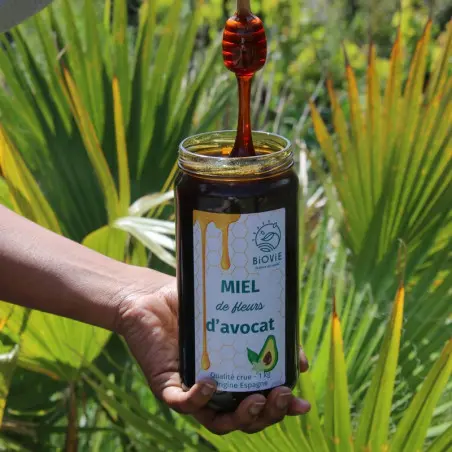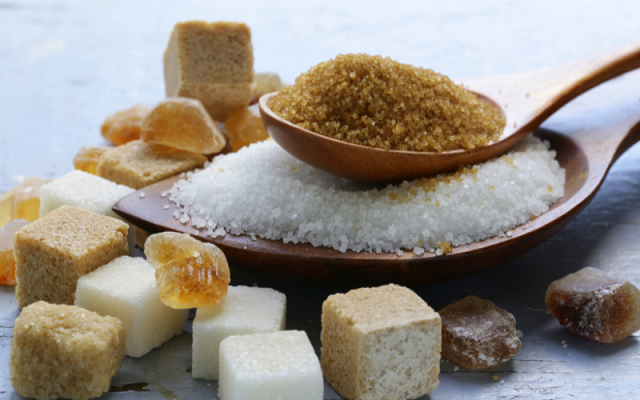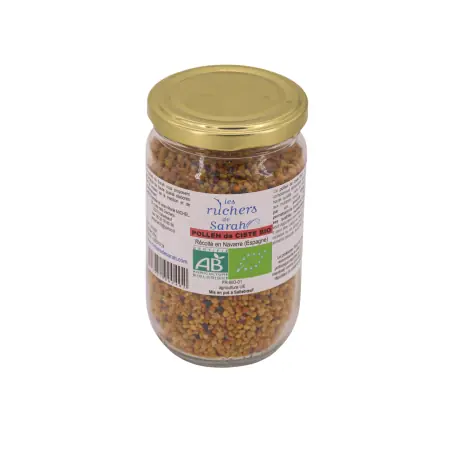Cakes, candies, chocolates, sodas, treats, these little guilty pleasures full of sugars are omnipresent and often irresistible. The consumption of sugar can stimulate the release of neurotransmitters such as dopamine, which is associated with pleasure and reward, and the idea of completely giving up this sweetness can seem both revolutionary and intimidating. Excessive and long-term sugar consumption can cause obesity, heart disease, type 2 diabetes, and even certain types of cancer.
In response to these concerns, more and more people are turning to a low-sugar diet or seeking alternatives to sugar in the hope of preserving their long-term health. In this article, we will explore how to effectively reduce sugar consumption and the healthy alternatives that can be adopted to maintain a balanced diet and preserve health.
Understanding Sugar: Types and Effects
There is a wide variety of types of sugar, the main types include:
- Glucose: It is a simple sugar and an immediate source of energy for the body. It is found in many foods such as fruits, vegetables, and grains.
- Fructose: Another simple sugar that is naturally found in fruits, honey, and certain vegetables. It is also used as a sweetener in many processed foods, in the form of high-fructose corn syrup. This ultra-processed form is less healthy than the natural form.
- Sucrose: White sugar, also known as sucrose, is composed of glucose and fructose. Used as a sweetener in beverages, desserts, jams, and various other food products, white sugar is a commonly used ingredient in cooking and baking.
- Maltose: A sugar composed of two glucose molecules, often produced during the breakdown of starch. It can be used in bakery products, sauces, condiments, etc.
There are also other sugars that are added to foods and beverages during their manufacturing or preparation, such as cane sugar, beet sugar, concentrated fruit juice, and other sweeteners added to processed foods.
It is important to know that when we consume sugary foods, our body reacts by releasing insulin to regulate blood sugar levels. However, daily and excessive sugar consumption can have effects on our health that go beyond simple weight gain and can have profound implications on our overall well-being. Indeed, high glycemic index foods, such as sugary drinks, pastries, and processed snacks, can cause rapid fluctuations in blood sugar levels, followed by a sharp drop, which can lead to cravings and energy slumps. Moreover, prolonged exposure to high blood sugar levels can increase the risk of developing health issues such as type 2 diabetes, cardiovascular diseases, and even certain types of cancer. Therefore, it is important to choose low glycemic index foods, such as fresh fruits, vegetables, whole grains, and lean proteins, to maintain stable blood sugar levels and promote better long-term health.
The effects of excessive sugar consumption on health
As we have mentioned previously, excessive consumption of sugar and sugary products can lead to harmful effects and have serious long-term repercussions on our health. Here are a few examples:
- Weight gain and obesity: Sugar is generally stored in the liver and muscles in the form of glycogen to maintain a stable blood sugar level. This glycogen is then used by breaking down into glucose and releasing it into the blood when the blood sugar level drops, to provide energy to the body's cells. However, when this sugar is consumed in excess, it can lead to an excessive caloric intake but low in nutrients, and it will be stored as body fat, thus leading to weight gain and potentially obesity.
- Insulin resistance and type 2 diabetes: The risk of diabetes is closely linked to insulin resistance and type 2 diabetes. Insulin is the hormone that regulates blood sugar levels; it is produced by the pancreas to allow glucose to enter cells to be used as a source of energy. However, when we regularly consume large amounts of sugar, our body can become less sensitive to insulin. As a result, the pancreas will produce more insulin to try to compensate, but this increase in production may not be sufficient to maintain normal glucose levels in the blood, leading to hyperglycemia, a precursor to type 2 diabetes.
- Increased risk of cardiovascular diseases: One Study A study conducted on women who participated in the Women's Health Initiative revealed that excessive sugar consumption, particularly from sugary drinks and artificially sweetened beverages, is associated with an increased risk of cardiovascular diseases such as heart disease and strokes.
- Chronic inflammation: High sugar consumption can trigger chronic inflammation in the body by stimulating the production of pro-inflammatory cytokines, which are proteins involved in regulating the immune response and inflammation. Elevated levels of pro-inflammatory cytokines can lead to chronic inflammation and the development of diseases such as arthritis, inflammatory bowel diseases, and even cancer.
- Increased risk of dental cavities: A book titled "The Impact of Nutrition and Diet on Oral Health" has dedicated an entire chapter to sugar and tooth decay, and confirmed that sugar consumption is a major etiological factor in dental cavities. The bacteria present in the mouth feed on sugar, producing acids when they metabolize the sugar, which attack the tooth enamel, leading to demineralization and eventually the formation of dental cavities.
- Effects on mental health: Research also suggests that excessive sugar consumption can have a negative impact on mental health, contributing to anxiety, depression, stress, and other mood disorders.
How to effectively reduce your sugar consumption ?
Effectively reducing your sugar consumption may seem difficult at first, but it is not impossible !
With a few simple adjustments to your eating habits and lifestyle, it becomes entirely achievable, and you will be able to reduce your sugar intake and improve your overall health in the long term. Here are some practical tips to help you effectively reduce your sugar consumption:
- Carefully read the nutritional labels to identify and examine the added sugar content in processed foods; you will be surprised to see the number of foods that contain it and that you would never have thought of. Look out for ingredients such as high fructose corn syrup, sucrose, dextrose, and maltose, which are all names for added sugar.
- To promote better health, prioritize sugar-free beverages over sugary drinks such as sodas, fruit juices, energy drinks, and flavored drinks, which are often high in added sugar. Instead, opt for plain water, unsweetened sparkling water, and other similar options. ginger lemon water... for better health.
- Avoid processed foods as much as possible, such as industrial cookies, cakes, and sugary cereals, as they generally contain a lot of added sugar.
- Cook at home and prepare your meals and snacks yourself because it will give you complete control over the ingredients you use, allowing you to choose healthier alternatives to sugar in your recipes.
- Avoid dairy products high in added sugars such as flavored yogurts, dairy desserts, and milk-based drinks, and opt for unsweetened yogurt, unsweetened milk, and hard cheeses... to reduce your daily sugar intake.
- Replace your sugar consumption with the consumption of healthy, fiber-rich foods such as fruits, vegetables, legumes, nuts, and whole grains. They can help you feel full longer and reduce your sugar cravings.
- Limit sugary desserts and reserve them for special occasions, while trying to find healthier alternatives, such as fresh fruit with plain yogurt, for example, or a fruit salad...
No longer eating sugar: is it a real solution ?
The decision to follow a sugar-free diet and stop consuming it may seem like a good solution, but not necessarily! Eliminating sugar radically from your diet can cause certain drawbacks, such as nutritional deficiencies. Cutting out certain sugar-rich foods, like fruits that provide important nutrients such as vitamins, minerals, and fibers, could lead to deficiencies, which might not be an effective solution.
Scientific studies have highlighted a close link between overconsumption of sugar and cognitive functions, particularly in the form of brain fog. This phenomenon is characterized by feelings of confusion, forgetfulness, and difficulty concentrating. A study published in the journal Neuroscience showed that excessive sugar consumption can lead to inflammation in the hippocampus, a crucial brain region for memory and learning. This inflammation can disrupt communication between brain cells and impair cognitive functions, resulting in symptoms of brain fog.
It is therefore more appropriate to consume sugar in moderation, without excess, because sugar, in the form of glucose, remains an important source of energy for the body. It is used by cells to fuel various metabolic and physiological processes. You can also find alternatives to sugar to reduce your consumption while satisfying your sweet cravings in a healthier and more nutritious way.
So, the solution lies in a moderate reduction of sugar consumption, which is more realistic and more beneficial for health than complete elimination. In practice, the best approach is to find alternatives to sugar, which is what we will discuss further in the rest of our article.
In the end, the most important thing is to find a dietary balance that is sustainable, nutritious, and suited to your individual needs.
Healthy alternatives to sugar
There are many healthy alternatives to satisfy your sugar cravings, benefit from a balanced and nourishing diet, and reduce your excessive sugar intake. Here are some options to consider:
- Stevia: It is a perennial plant native to South America, where it has been used for 1500 years by its inhabitants for its sweetening power, which is 10 to 30 times higher than that of white sugar. It is alkalizing with a slightly aniseed taste and contains virtually no calories (less than 1 calorie per 100 grams). It is very suitable for diabetics. Half of a small stevia leaf is enough to sweeten a cup of beverage. Its authorization for use varies greatly from country to country, and Japan was the first country to develop its cultivation and use on a large scale. You can obtain stevia plants on the Internet or from local producers, but uGreat caution should be exercised with products containing refined stevia in tablets, which should be avoided, as the extraction process of isolated steviol glycosides uses synthetic solvents that leave undesirable residues and eliminate other natural compounds of the plant. Its white powder, water-soluble and easy to dilute, is an extract without aftertaste that has been highly refined, with a sweetening power approximately 100 to 300 times that of white sugar. Stevia glycosides are sometimes combined with other ingredients (maltodextrin, silica dioxide, which is generally provided in nanoparticle form, highly controversial...).
- Maple syrup: Maple syrup is a natural sweetener that is produced from the sap of the maple tree. It has a sweet and distinctive taste, and it is often used as an alternative to sugar in sweet recipes and can also be used as a sweetener for hot beverages. It is preferable to obtain unheated, unpasteurized, and organic maple syrup.
- Fruit sugar: It is a natural sweetener derived from fruits, typically available in powder, crystal, or liquid form. Unlike table sugar, which is extracted from sugar cane or sugar beets and is primarily composed of sucrose, fruit sugar contains a variety of natural sugars found in fruits, including fructose, glucose, and sucrose. You can find it in our store. natural fruit sugar made from organic grapes which can naturally replace regular sugar in your recipes, while limiting blood sugar spikes.
- Coconut sugar: It is made from the sap of coconut flowers. After being cooked in a cauldron over wood-fired stoves (mainly using bamboo and dried coconut leaves), the molasses is mixed with a coconut and naturally crystallizes. The glycemic index is low: 25.
- Date sugar: This sugar is made from 100% dehydrated dates, finely ground. This process helps to preserve all the nutritional components of the fruit intact. It is generally untreated and unrefined (though this should be verified). The glycemic index of date sugar is 68.
- Complete and organic cane sugar: It has a low glycemic index: 25. It should not be confused with brown cane sugar because, in most cases, the latter is refined sugar recolored with molasses or colorants. A test consists of placing a bit in a strainer and running it under water, which will cause it to lose its color. In some cases, it is refined sugar that has been cooked, which should be strictly avoided. There is also blond cane sugar, which is less refined than white sugar but has lost a significant portion of its nutritional qualities. To be certain of its quality, it is recommended to buy whole or unrefined sugar from a specialized dietetic store. This type is recognizable by its rich and raw taste, loaded with minerals and trace elements.
- Honey: Also considered a natural sweetener produced by bees from flower nectar. Due to the simple sugars it contains, it is not compatible with foods containing complex sugars. It is rich in antioxidants, vitamins, and minerals and has a characteristic sweet taste. Honey is used as an ingredient in home remedies to relieve sore throats and other ailments. It is recommended not to consume heated or pasteurized honey, a technique used to prevent crystallization. One must also be very vigilant about the quality of the honey purchased because many honeys are produced by operators who feed the bees with sugar, although this is not allowed, and others, which are not "organic," with antibiotics! Beware of all the "fake honeys" from imports.
- Agave: Agave syrup is a natural sweetener., Made from the juice of a cactus, agave. The production method should be taken into account when purchasing this product. Avoid all refining techniques or processes that could alter the integrity of the plant. Agave syrup is a natural sweetener that comes from the extraction of the sap of the cactus found in the heart of the agave piña when the plant is between 7 and 10 years old. Agaves grow on the volcanic soils of southern Mexico. The juice of the agave piña is filtered and then gently heated - the temperature must not exceed 45°C - in order to promote a concentration of sugar (a complex form of fructose called inulin), which results in a liquid syrup. This syrup has a strong sweetening power. Despite a low glycemic index, which is beneficial for avoiding significant insulin secretion by the pancreas, this is only true if the fructose has not been subsequently refined, as it becomes harmful to health.
Attention: All these sugars should still be consumed in moderation, even when care has been taken to choose them from organic sources and they are extracted without altering the original product. Natural should not be an encouragement for overindulgence.
Conclusion
In conclusion, reducing sugar consumption can offer numerous health benefits, as it helps prevent a wide range of health issues, including obesity, type 2 diabetes, cardiovascular diseases, and dental cavities.
It is also worth mentioning industrial products that are often high in added sugars and can contribute to overconsumption of sugar. These products can cause side effects such as mood swings, unstable energy levels, and digestive issues. Sugar cravings can be considered an undesirable effect, as excessive sugar consumption can create a cycle of dependency and constant desire for sweet foods.
Reducing sugar consumption can lead to significant transformations in health and well-being, including weight loss, stabilization of blood sugar levels, and improved oral health. However, it is important to note that completely eliminating sugar can cause certain nutritional deficiencies, so it is essential to find a sustainable balance by opting for healthier alternatives to sugar and prioritizing a balanced and nutritious diet.









